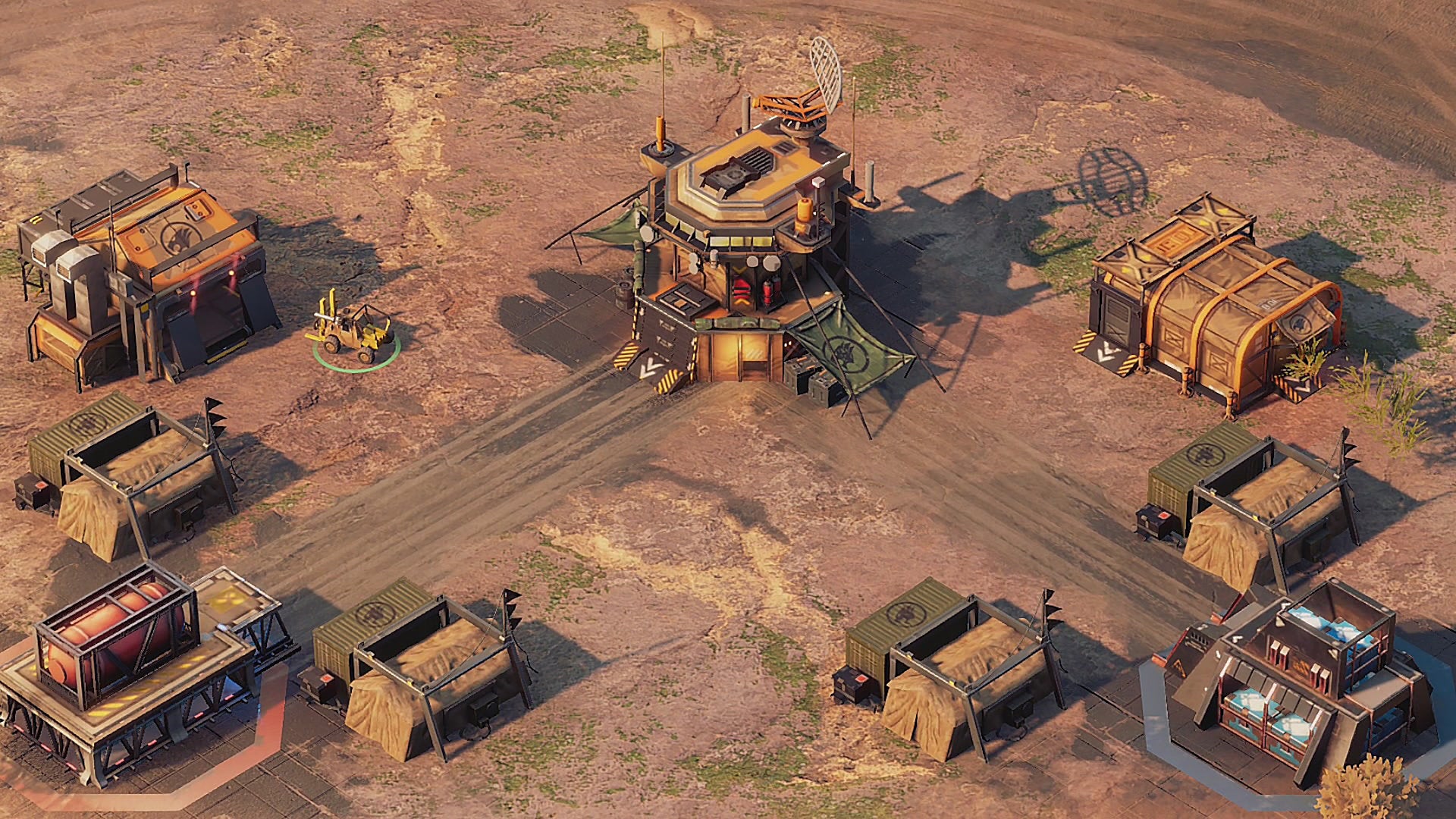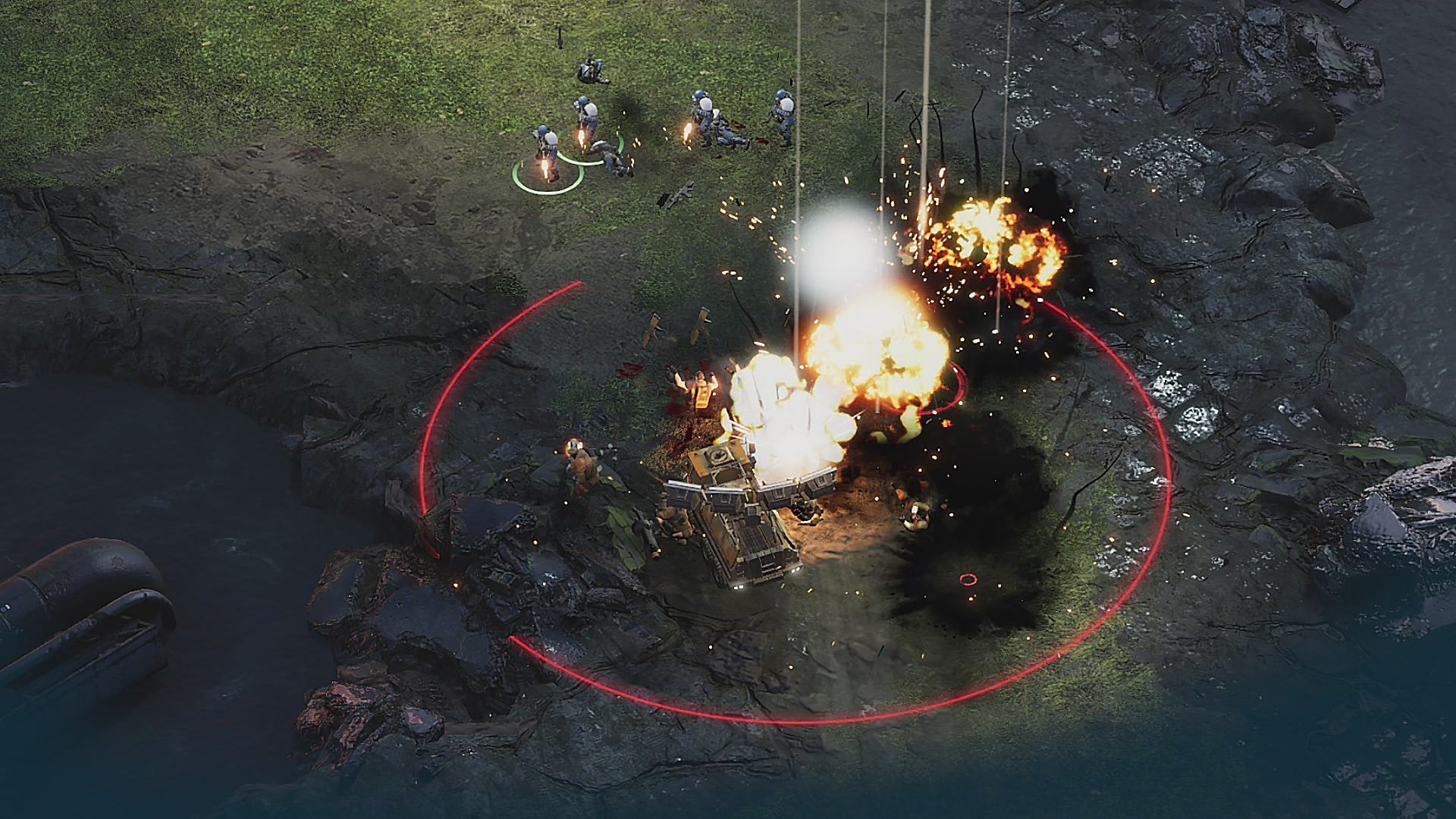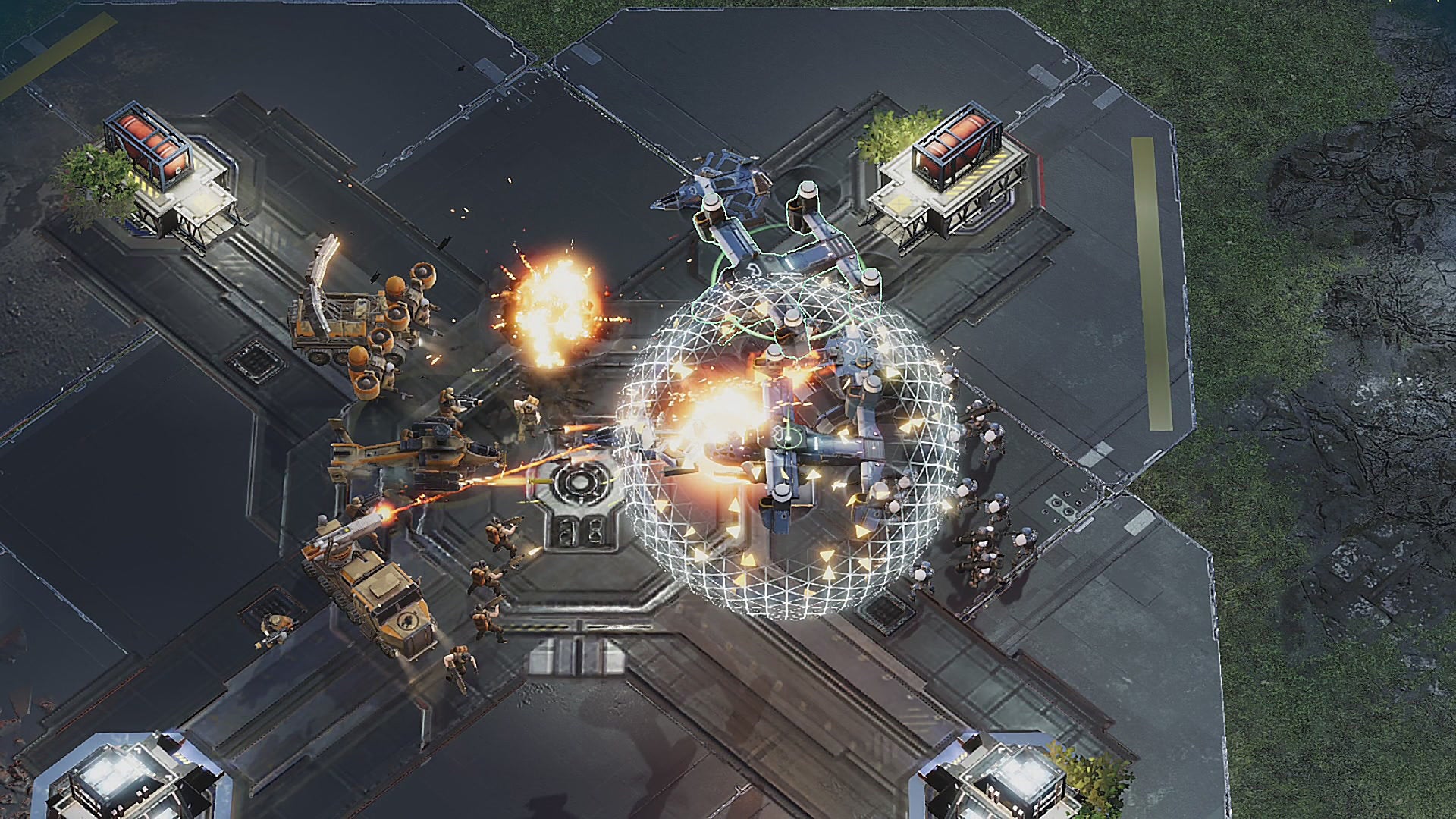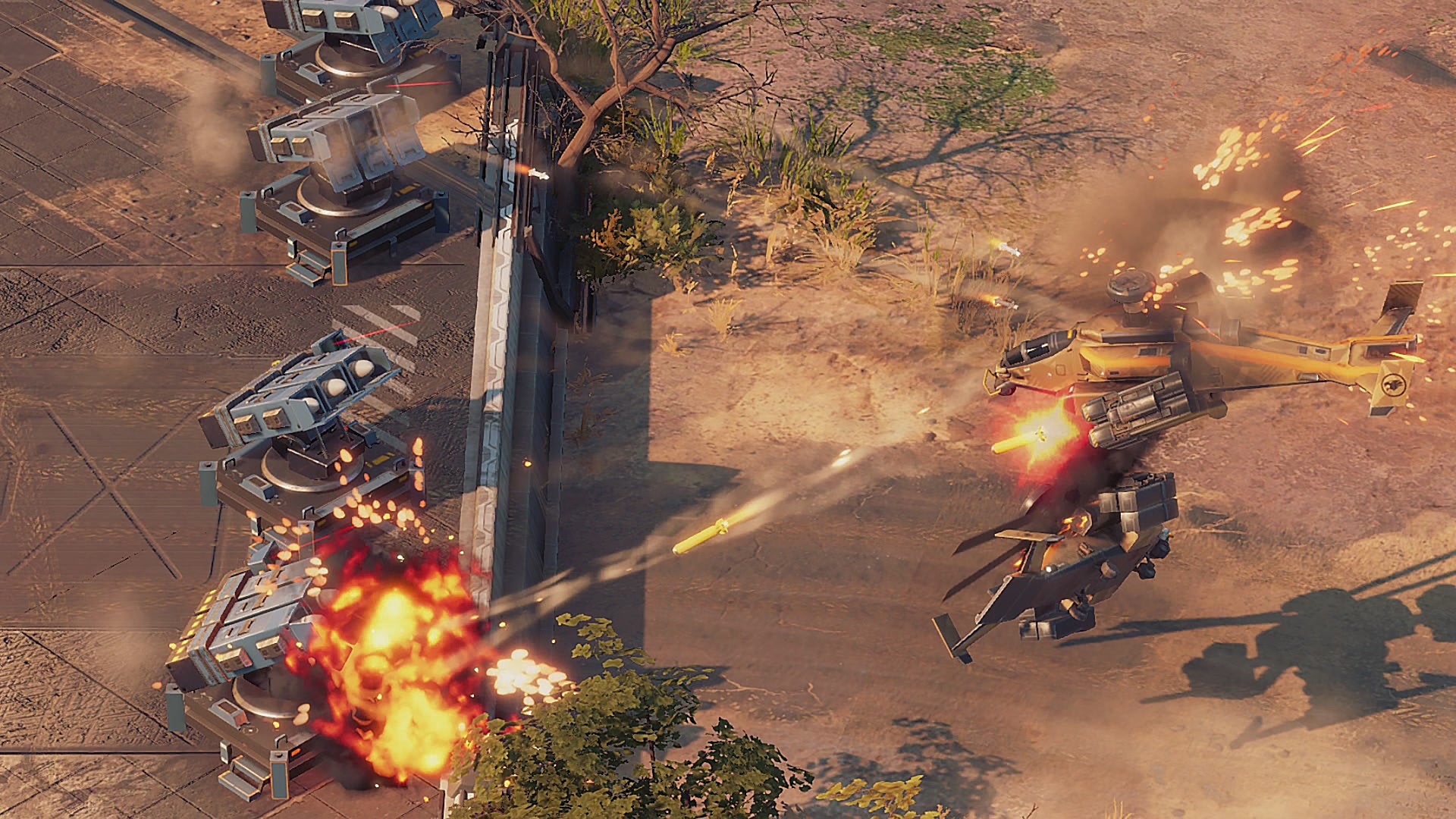Can I get a ‘woop woop’, or at least a ‘wololo’, for the spin-off strategy game? The Ensemble Studios swansong that was Halo Wars, an RTS so streamlined it was aerodynamic. The ballistic ballet of Gears Tactics, which piled extra biceps atop XCOM’s shoulders. Even when money has moved through the membrane in the opposite direction, it has resulted in projects that were - let’s not overstate this - endearingly experimental. Can I get an understanding nod for Command & Conquer: Renegade?
The strangeness of Crossfire: Legion’s situation is that you might not recognise it as a spin-off at all. That’s because the series is a big old blind spot for the Western world. Crossfire is an enormously successful Korean FPS that bears more than a passing resemblance to Counter-Strike - all right angles, assault weapons, and de_dust2 - but dwarfs even Steam’s most popular game for player numbers. With 690 million participants across 80 countries, it’s the biggest online FPS in the world. In China, where the game is a major cultural force, a coming-of-age television drama about two young Crossfire players has been watched 1.8 billion times. Bridger-what? Geralt of Where? The upshot of all that success is that Crossfire radiates money, and some of it is now funding new games from prestigious Western developers. Remedy is working on a campaign FPS in the classic COD style. And Blackbird Interactive is building an RTS named Legion.
“[Crossfire developer] Smilegate always had in the back of their head an idea of making a proper real-time strategy game,” says Robert Wozinski, global brand manager at Koch publishing label Prime Matter. “This beautiful dream had only one problem: they were not experts in a very demanding RTS world. They met Blackbird Interactive, and from that point, things went super fast.”
Blackbird is the Canadian outfit to whom Gearbox has entrusted Homeworld 3, and with good reason. Besides its own impressive strategy CV beginning with Homeworld: Deserts of Kharak, and a sideline in the deconstruction of both spaceships and capitalism through Hardspace: Shipbreaker, Blackbird also has its roots in Relic Entertainment - sharing founding members with that venerable strategy studio.
Don’t expect the grace and bearing of Homeworld from Legion, however. This “classically-inspired” RTS has much more in common with StarCraft - units quickly born, bunched, and hurled at each other in frantic and messy skirmishes. “What makes it stand out are the magic touch of macro strategy,” Wozinski says, “with an army card system, adrenaline-oriented gameplay, and incredibly high pace.”

That card system promises a high-level metagame for customising your forces. The idea is that you’ll pick your units, as well as a commander with special abilities, before all the clicky-clicky, enemy-bludgeoning business begins. But most of that was off-limits during my demo, in which I could select between just a couple of commanders from a large roster.

One is named Cardinal, a straightforward “fixer” for corrupt peacekeepers Global Risk - able to call in an artillery barrage or temporarily boost soldiers’ healing and rate of fire. But I went for Phoenix, a representative of the terrorist group Black List, whose guerilla tactics appealed more. His Ghost Core is an outpost you can plant anywhere in your units’ field of view, which functions as an exit portal for teleported troops. Even better, they’re stealthed when they emerge, making them untargetable.
It’s a short-lived power which, like most of Legion’s tactics, are rooted in sound planning and impeccable timing. During an hour-long session, I witnessed a Blackbird developer swarm a base from behind by setting up her Core just right - while I, as the aggrieved party’s ally, attempted to pull down her whirlybirds using buggies equipped with grapple hooks.
These high points came amid a host of deeply familiar sights - resource gathering, base consolidation, and bursts of battle between clustered units in bottlenecks. Legion strikes me as a reliable sugar rush - a front-footed RTS with a simplified base-building phase that sits somewhere between Halo Wars and Command & Conquer, ensuring the fight is never far away.

But there’s not a lot to hold onto. For all of Prime Matter’s talk about the “unique Crossfire world”, it has to be said that little stands out as original in this universe - at least at first blush. Wozinski calls it a “close future where two factions fight strongly for their own convictions”, which seems about the size of it - a blurb that could just as easily be applied to a thousand other PvP games.
Legion isn’t visually inventive in the way Homeworld typically has been, either. Its landscape of flat-pack bases, beige tents, empty terrain and fork-lift trucks is most charitably described as functional. In that respect, it is true to Crossfire - a shooter which wasn’t competitively beautiful even when it first launched in 2007.
But that dearth of identity clearly hasn’t hurt Crossfire in the past. In fact, it may well have enabled its mass adoption - allowing Smilegate to dodge creative choices that could have proved divisive, and hoover up players on low-end PCs. I suspect Legion has a similar path laid out for it.

So far, Prime Matter has established a roadmap that starts with a closed beta this month, and ends with an early access release in April. That will include 1v1 and 3v3 modes across two maps, playing as either Global Risk or Black List. A third faction, teased with a rather unkempt silhouette that suggests a less disciplined force, will be unveiled in late February, when they’ll be playable in a public demo. Ultimately, Legion will encompass a single-player campaign, co-op scenarios, and a map editor.
Community involvement will “help ensure that the ease-of-use of modern strategy mechanics don’t mask what made us fall in love with RTS games to begin with,” Blackbird says. Though its intent isn’t purely nostalgic: the developer is plotting “new game modes that may stretch the idea of what strategy games can do, or how it should play”. It’s that vague promise that holds the most potential - a chance for a seasoned studio to surprise us, stretching creative muscles which, based on the traditional RTS shown to date, Crossfire: Legion hasn’t taxed yet.
https://news.google.com/__i/rss/rd/articles/CBMiXGh0dHBzOi8vd3d3LnJvY2twYXBlcnNob3RndW4uY29tL2Nyb3NzZmlyZS1sZWdpb24taXMtdGhlLWZ1dHVyZS1vZi10aGUtcnRzLWFzLWl0LXdhcy1pbi0xOTk50gEA?oc=5
2022-01-18 09:00:45Z
1259817677
Tidak ada komentar:
Posting Komentar